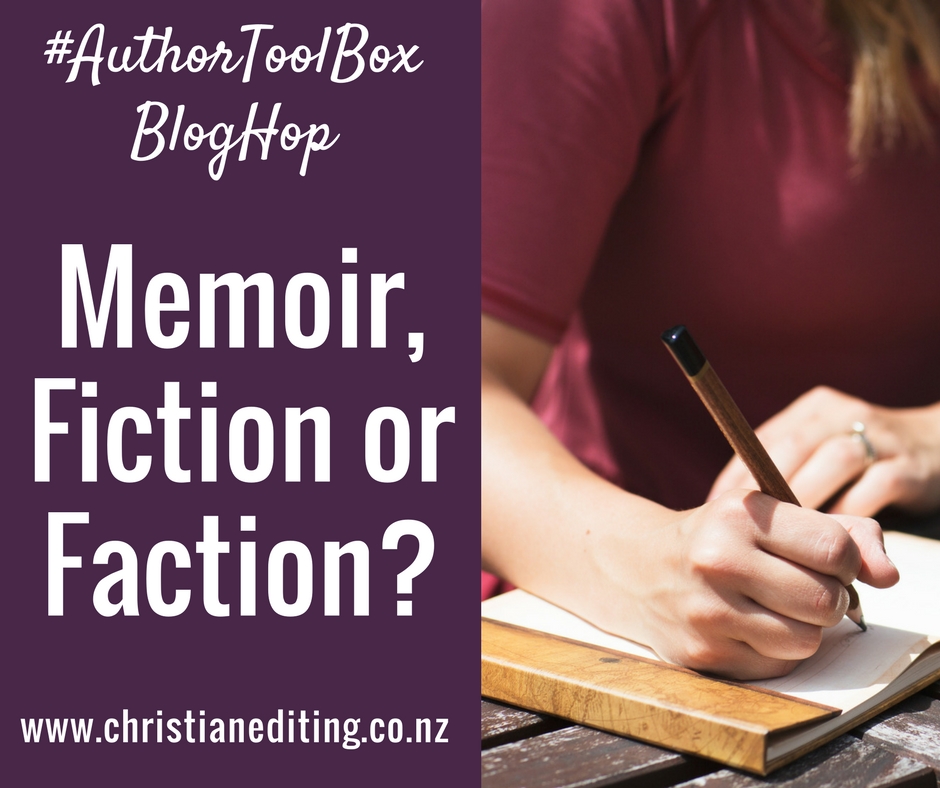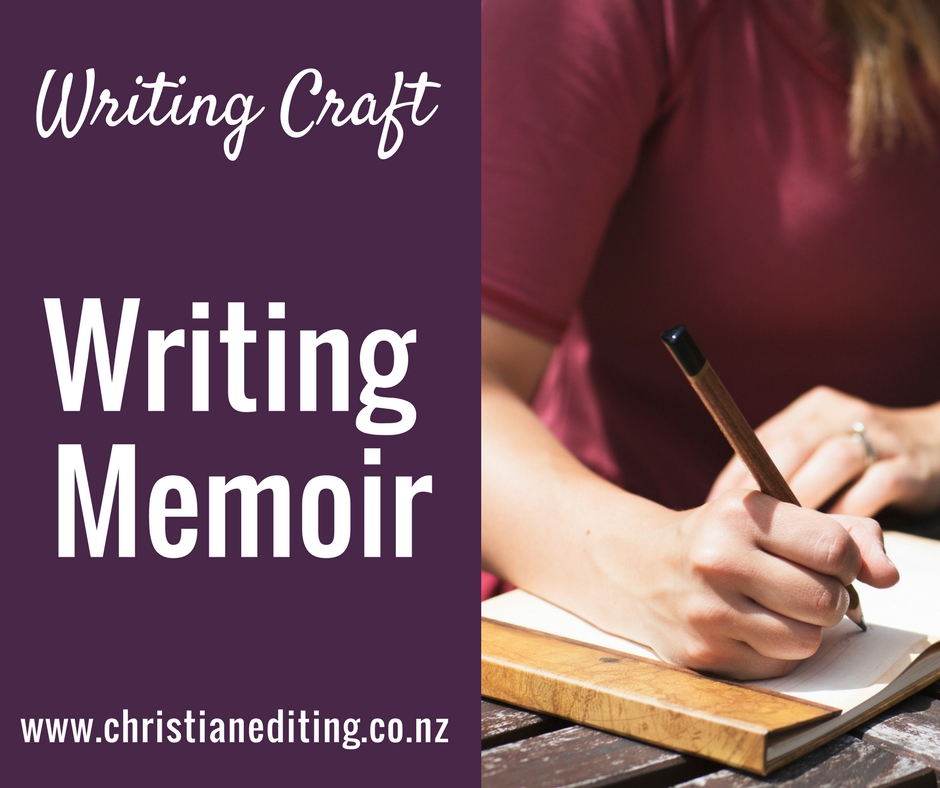Welcome to the first #AuthorToolBoxBlogHop of 2018!
The monthly Author Toolbox Blog Hop is organised by Raimey Gallant, and has over 40 participating blogs. To find more posts, click here to check out the main page, click here to search #AuthorToolBoxBlogHop on Twitter, or click here to find us on Pinterest.
Are you writing real-life stories?
I work with a range of authors as a freelance editor. Most are writing fiction, because that’s my specialty (specifically, Christian fiction). But I do have a few clients writing stories based on true life events. Sometimes these books are clearly non-fiction—memoir (I shared my top tips on writing memoir last week). Some are pure fiction. Others are a mixture of both.
How do you decide which is the most appropriate for your story? Memoir or fiction or something in between?
Memoir?
Memoir is the appropriate choice when the author is discussing good experiences (like a relationship that has had a positive effect on her life), and when the author is prepared to tell the truth.The whole truth. Including the ugly parts. Anything less is fiction, not memoir. And good memoir, like good fiction, is shown rather than told.
Soul Friend by Jo-Anne Berthelsen is an excellent example of memoir. It doesn’t tell all the events of jo-Anne’s life as an autobiography would. Instead, Soul Friend follows a theme in a way that changes the way the reader sees the world. In the case of Soul Friend, the memoir follows Jo-Anne’s journey with Joy, her spiritual mentor, which had me envying the relationship.
Or Fiction?
In contrast, Words by Ginny Yttrup is a novel about sexual abuse written by someone who has herself experienced abuse. Yttrup says she doesn’t use her own experiences in Words, but it’s clear she has used the memories and feelings from her own experiences, then adapted those to her fictional writing.
Words is typical of what readers expect in fiction: clear point of view, clear character goals, motivations, and conflicts, a three-act plot, and showing the story rather than telling. There is an excellent build-up of tension throughout the novel, and the writing is outstanding—emotive without being graphic.
Fiction based on real-life situations is the appropriate choice where the author is prepared to weave a story around the main events and themes, rather than feeling obliged to remain true to what actually happened. It may be easier to compartmentalise when writing fiction: these difficult events are happening to your character, not to you.
Choosing to write a story as fiction will mean creating characters rather than adapting real people. It will mean creating a plot that fits the expected three-act structure, rather than relying on what actually happened and when. But fiction still requires the author to go deep into the feelings of the situation—positive and negative. Especially the negative, because good fiction is about conflict, about things going wrong or things that shouldn’t have happened.
Or Something In Between?
Then there is the middle ground: writing a fictional account of a factual story. This is known as a non-fiction novel, or faction. One well-known example is Roots by Alex Haley, which details nine generations of his family’s history.
I’ve read many novels which take this faction approach. Some are writing about the experiences of people and events from long ago, perhaps from their own family history. Some are writing about events that are closer to home, about people they know e.g. friends or parents. And some are writing their own story in novel form.
I’ve read (and edited) non-fiction novels, both those based on the author’s own experiences, and those based on their family history. Some were written as pure fiction, others were written as faction. The stories which worked best had the following features:
The author was sufficiently distanced by time to be able to write about the people and events without personal bias.
This may be because the author is writing about other people (e.g. parents or other relations, or complete strangers) rather than about himself or herself. Authors who are writing about themselves often don’t pay enough attention to the goals, motivations, and conflicts (GMC) of their lead characters—possibly because they didn’t have a personal goal at the time. This lack of GMC makes for a weak novel.
The author was prepared to be honest about the faults of the characters.
No one is perfect in real life, and no one likes reading about perfect fictional characters. This means the author needs to ensure the main characters has faults … even when that main character is based on the author. And they have to be real faults, not the kind we dredge up for job interviews (“People say my biggest fault is that I work too hard”).
The main character’s actions felt realistic.
The problem with creating an almost-perfect main character is that personal stories (fiction or faction) are almost always stories where something went wrong or where something bad happened. That’s good, because good fiction is about conflict, about things going wrong. Sometimes this leads to characters making decisions that are out of character … because that’s how it happened in real life. It’s not enough for that thing to have happened in real life. It also has to make sense in the context of the character the author has created (even when that character is based on the author or someone s/he knows).
The author was prepared to change what actually happened.
In fiction, the needs of the story are paramount. If cutting a scene, changing the timeline, or combining characters makes it a better story, the change is made. Even if that wasn’t how it happened in real life (because fiction has to feel realistic for the reader).
The author kept to one story.
I read one World War II novel that had a good first half, but then turned strange in the second half. When I read the author’s note, I found the first half had been based on the real-life events of one person, and the second half based on another. That’s why the second half seemed as though the heroine was acting out of character: because she was literally a different person.
But this can happen even if the author sticks to one character. Good fiction is like memoir: it focuses on one key theme or story question. A scene that doesn’t move the character closer to their goal has no place in the novel. Even if it’s the time you (aka your character) met the Queen. Stick to the story.
What is Right for Your Story?
So what is right for your story? Memoir, fiction, or faction? Only you can answer that question, but I hope these tips will help you decide.






